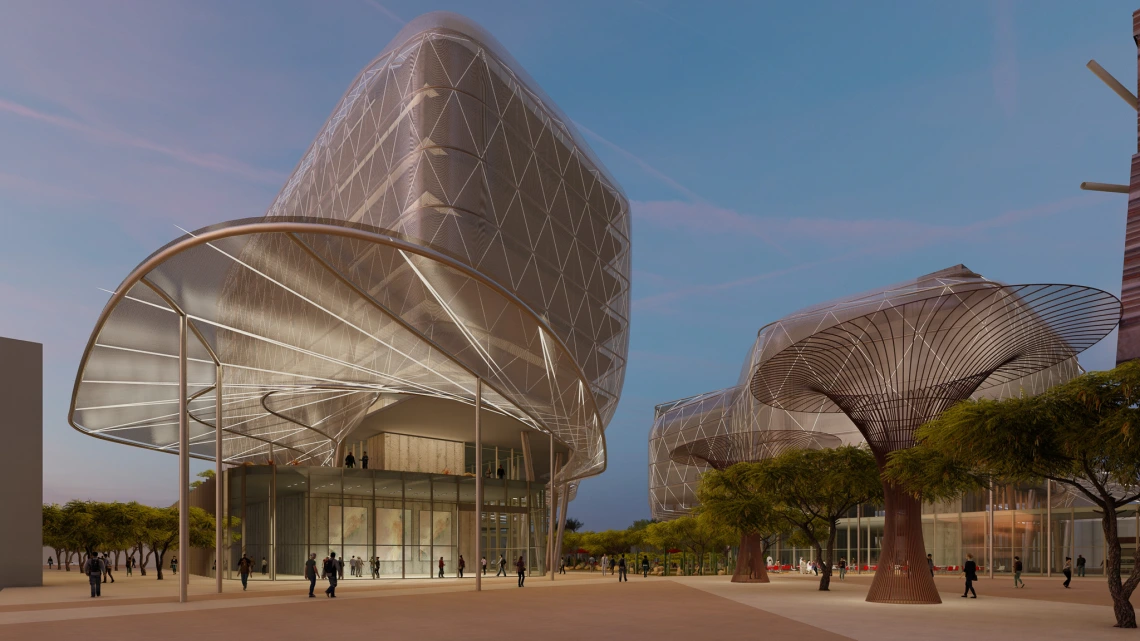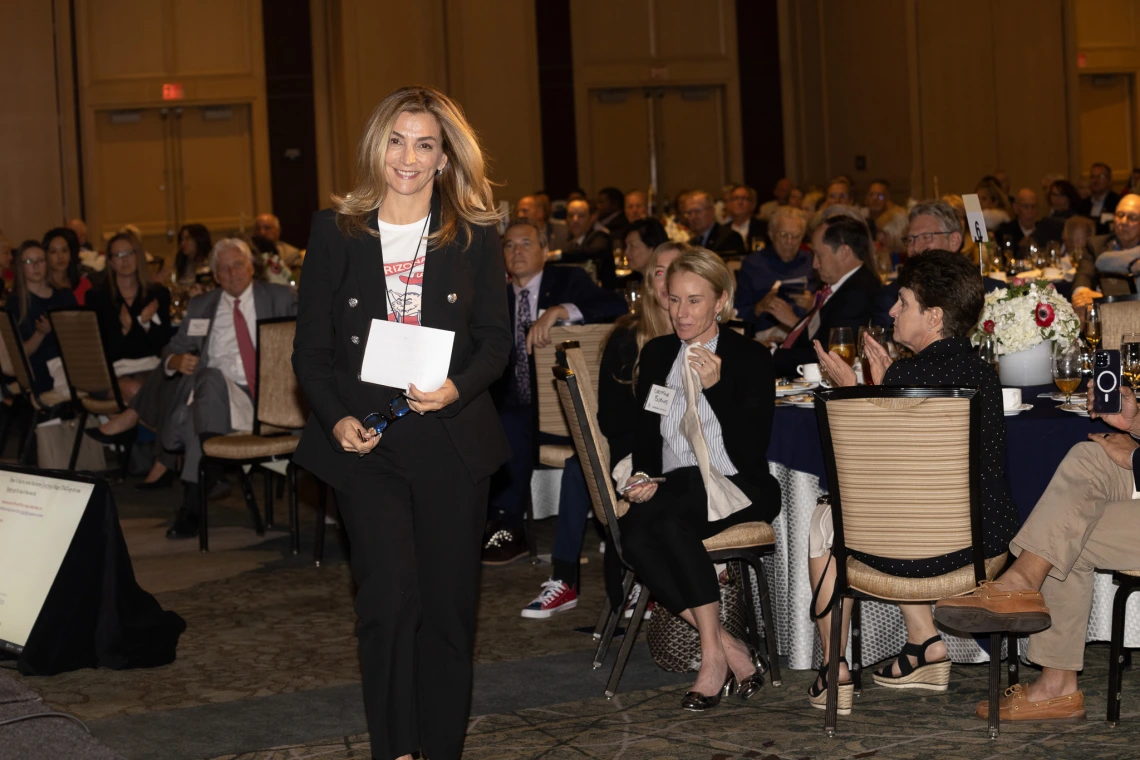Center for Advanced Molecular and Immunological Therapies | A Bold Approach to Research

A moonshot is a brave and audacious endeavor. The Fuel Wonder campaign initiative called Moonshot is about meeting the grand challenges of tomorrow through research and innovation. It asks us to think past perceived limits and achieve what is supposedly beyond reach, setting the stage for global Wildcat impact.
Among the University of Arizona’s moonshot initiatives is the development of the Center for Advanced Molecular and Immunological Therapies, or CAMI, the national biomedical research hub whose story we continue telling here.
“Since there is nothing we can take with us from this life,” said the late George Vanderheiden, “we should try to leave behind as much as possible.”
Vanderheiden, a longtime fund manager at Fidelity Investments who died of pancreatic cancer in 2022, lived out that credo alongside his wife of more than 50 years, Sharon. Together, the Vanderheidens helped the families of fallen military service members get set in mortgagefree homes and helped pregnant women suffering from addiction access safety and wellness programs. They also made sure their home base — Wolfeboro, New Hampshire — had plenty of pickleball courts.
Now, George’s legacy continues through his cousin, Bruce Bartlett, and Bartlett’s spouse, Patricia. The Bartletts, committed champions of University of Arizona students, have given $3 million to create the George A. Vanderheiden Endowed Chair in Cancer Immunological Research at CAMI. The chairholder will direct the center’s cancer division.
The gift is just one of the recent philanthropic acts giving life to the center, established by UArizona Health Sciences in 2022 on the Phoenix Bioscience Core. The Steele Foundation, founded in 1985 by attorney Daniel Cracchiolo ’52, made the first private charitable investment in the center — part of a $10 million commitment to the UArizona Steele Children’s Research Center.
Like Vanderheiden, Cracchiolo died last year. The Steele gift was realized under the leadership of his daughter, Marianne Cracchiolo Mago ’93. Previously the senior vice president of comedy at Warner Bros Television, Cracchiolo Mago has been the foundation’s president and CEO since 2007.

“The foundation is honored to be the first private philanthropic investment in CAMI,” Cracchiolo Mago says. “CAMI’s presence in Arizona is vital to advance science and innovation, combatting everything from cancer to Alzheimer’s.”
The family ties push along a center with significant ambitions in the areas of immunotherapy, which marshals the body’s immune system to counter disease, and molecular therapy, where drugs lock in on the molecules at the heart of an illness’s progression. According to Michael Dake, senior vice president for UArizona Health Sciences, such interventions will change how providers help patients heal.
“We are going to see diversification of drug classes and different types of combination therapies, delivery mechanisms and monitoring,” Dake says. “Going forward, I think we’re going to see a wide array of therapies that are going to be vastly different than any past generations ever had. Suffice it to say: In the future, pills and syringes are going to be obsolete.”
The cell- and gene-based therapies advanced by CAMI are powered by a common engine: precision medicine, an approach to health care that factors in patients’ genes, environments and lifeways. They equip doctors to more effectively contend with a range of acute ailments, among them cancers, infectious diseases and autoimmune conditions. CAMI, Dake reasons, will be “nothing short of a national biomedical research hub,” a vision backed by the state of Arizona, which committed $150 million to the center under former Gov. Doug Ducey. In June, the center was granted an additional $4 million by the Maricopa County Board of Supervisors, which drew on federal funds provided by the American Rescue Plan Act

